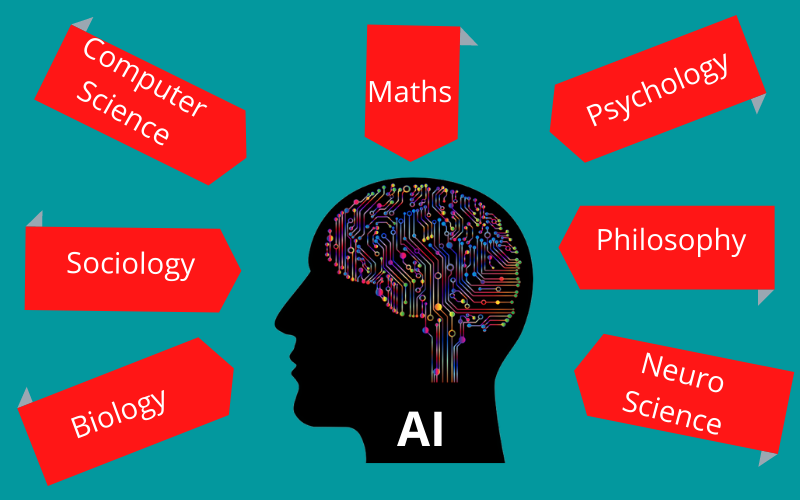Introduction to Artificial intelligence
We should know what is intelligence first before we understand artificial intelligence.
So what do we mean by intelligence?
Answer: The meaning of intelligence as per the dictionary is “The ability to acquire and apply knowledge and skills.” It is gained by experience and learning.
We human learn new skills from our experience or learn from the experience of others. We learn by watching, listening, reading new things. We can remember, think, and apply our skills when needed. We can think logically.
Now the question arises can computers be created as intelligent as humans?
Yes, a branch of Computer Science called Artificial Intelligence is creating computers or machines as intelligent as human beings.
As coined by the father of Artificial Intelligence, John McCarthy, “The Artificial Intelligence is science and engineering of making intelligent machines, especially intelligent computer programs”.
Artificial Intelligence is a process or a since of making a computer, a computer-controlled robot, or a software think intelligently, in a similar manner the way a human thinks.
AI can be achieved by understanding the way a human brain thinks, learn, decide, and work. How they use their intelligence to understand and solve a problem at hand. AI application can be developed based on the outcomes of this study.
Philosophy of AI
With the evolution of computers systems and software and their ability to perform varied tasks with optimum speed and accuracy, a curiosity was generated in scientists and that led to a research and process of creating a machine to think and work like humans.
Thus, the development of AI started keeping in mind to create intelligence in machines which is up to the level of humans.
Which Disciplines build an AI?
Human intelligence, such as reasoning, learning, and problem-solving is playing a major role in a contribution to developing AI. However, there are other fields which play an important part to build an AI software or system.

1. Computer Science.
2. Philosophy.
3. Mathematics.
4. Psychology.
5. Neuron Science
6. Biology
7. Sociology
Fields Where AI Is Applicable:
By now AI has been applicable in below fields predominantly.
• Gaming World:- Many games have been developed and updated using AI. Games such as tic-tac-toe, poker and chess. Machines were made to think of large number of positions based on heuristic knowledge.
• Natural Language Processing:− Applications has been developed using AI where it is possible to interact with the computer which understands natural language spoken by humans.
• Expert Systems − AI applications have been created where integration with a machine is done which in returns gives the reasoning and advice. The machine provides advice and explanation to the users.
• Vision Applications: − These applications/software are capable to understand, interpret, and comprehend visual inputs. They capture the image and compares with the data. For example,
◦ A drone takes photographs, which are used to figure out the information.
◦ Software used by the police departments to compare the sketch drawn by the artist with the photo of criminal available in their database.
◦ Companies using the system where automatic attendance is recorded in the system as soon as the face of an employee is detected.
• Speech Recognition Applications:− Applications are already there in the market which recognizes the speech and converts that speech into text.
• Handwriting Recognition − AI application/software can read the hand-written papers and convert them into editable documents. A PDF can also be converted into an editable document.
• Intelligent Robots − Robots are created to perform particular tasks which are repeated. These robots have sensors which can detect physical objects and perform the programmed tasks.
Conclusion: AI is the future. Most of the applications, software are now developed based on AI. Though there are lots of confusions whether AI is a Friend or Foe of a human being. We all have to wait and watch where AI leads us to.

Post comments
Leave A Reply
Your email address will not be published.